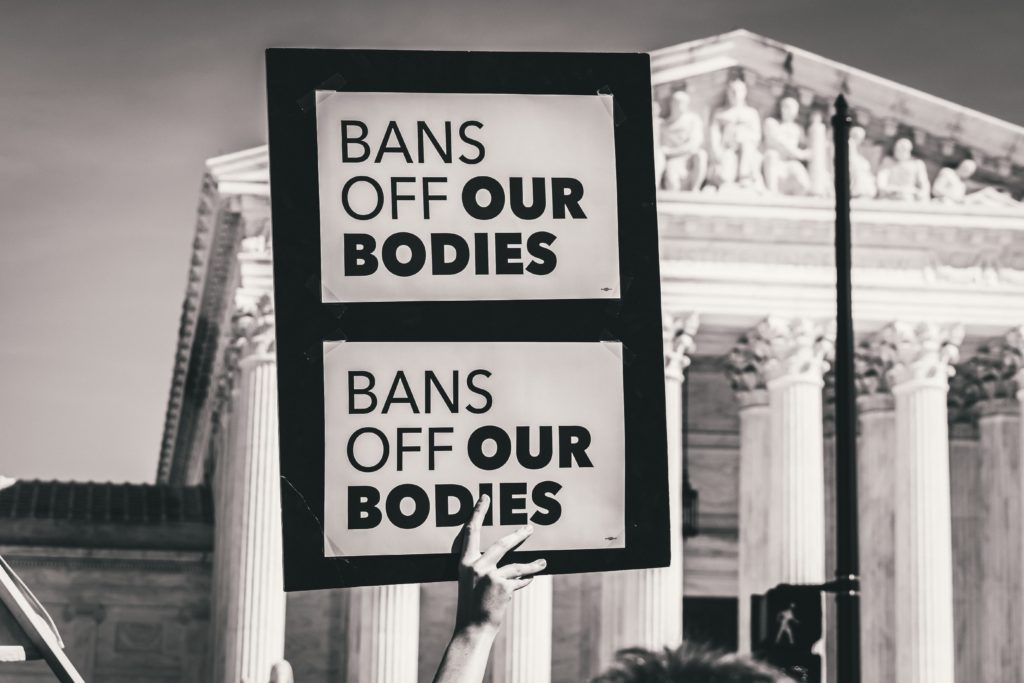Once again we find ourselves in a nationwide debate about women’s reproductive rights and bodily autonomy. We know that inherent to our well-being is the ability to make informed decisions about our healthcare. And not only is our physical health at stake but taking away our right to choose when or if we will have children can contribute to both short and long-term mental health challenges.
What are women’s reproductive rights?
A woman’s reproductive rights give her the ability to decide if, when, and how she will have a child. Some women choose to wait until they are more financially secure or complete their education, some prefer to foster or adopt, and others may choose not to have a child at all. Reproductive rights give us this choice. The right to choose has a positive impact on a woman’s salary, stability, and overall health.
Women’s reproductive rights have a long and complicated history in the U.S. One of the most well-known court cases, Roe v. Wade, granted women the right to an abortion in 1973. In the years following, we’ve seen women’s health improve in many ways.
Over the past few years, however, some states began setting more and more restrictive laws regarding a woman’s right to choose. The most recent headlines about overturning Roe v. Wade are deeply concerning because overturning this law not only undermines our equality but agency over our bodies. It’s a slippery slope, and the implications for our well-being are profound.
How restricting women’s reproductive rights impacts mental health
Restricting a woman’s right to choose has a direct impact on our mental health. Research tells us that anxiety and depression increase when we lose control of our reproductive rights. Worry and fear about the future can permeate all aspects of life, from day-to-day tasks to intimate relationships. Even though contraceptives are helpful to prevent unwanted pregnancies, there are situations where a woman can still become pregnant after taking every precaution. It’s a loss of control that changes our lives not only for a few months but for years to come. And, if you’re not in a place where you’re ready or able to provide for a child, the consequences can be devastating (not to mention the lack of maternal health resources in certain parts of the country).
Victims of domestic abuse are also more at risk with restrictive abortion laws. Either through psychological coercion or as mandated by a court, a woman may stay in contact with her abuser over the fear of losing support or feelings of obligation, putting both herself and the child in harm’s way.
One research study, known as the Turnaway Study, cites that providing access to abortion services has a positive impact on women’s mental health and wellbeing. Participants in the study, through a series of questions, voiced anxiety and stress when told they could not access an abortion (for the study). On the other hand, 84% of women who were free to choose an abortion shared “positive or few emotions about their decision” five years after the procedure.
Make no mistake, the study did not state that deciding to have an abortion is easy. Often it is not. Sometimes it is the most difficult decision a woman can make. What the study does highlight is the positive, long-term impact of the right to choose for women’s mental health.
How restricting women’s reproductive rights impacts physical health
Knowing that our mental and physical health are inextricably linked, we’d be remiss not to touch on the impact of denying our right to choose on our physical health. This is where many of the laws surrounding abortion, such as Roe v. Wade or state fetal heartbeat laws, become murky. Medical issues such as cancer, heart disease, and ectopic pregnancies are a direct threat to a woman’s life. If she’s pregnant, however, her care team may delay treatment to preserve the life of the fetus to the detriment of her health. While doctors will act to save the mother’s life if complications arise, it’s not always in time to prevent further physical and emotional distress.
Why women’s reproductive rights are essential to our wellbeing
Choosing to have an abortion is not a decision we expect to make until it confronts us face to face. It’s not something we plan for in advance. That’s why, even though it may not be easy to sit with these scenarios or fully absorb the implications of overturning Roe v. Wade, it’s not something we can ignore. There are direct consequences to our mental health and well-being by taking away our agency and telling us what we can and cannot do concerning our bodies. As friends, mothers, daughters, and sisters, we must look out for one another—and our rights.
